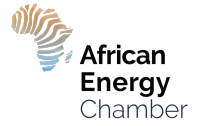With energy demand projected to increase more than 50% between 2020 and 2050, Africa is strategically positioned to meet global energy needs while driving its own socioeconomic development
Global energy demand is anticipated to increase 27% by 2040, with fossil fuels projected to account for the lion’s share of the world’s energy mix beyond 2050. Meeting this demand will require alternative energy supplies, and Africa, with over 125 billion barrels of proven oil reserves and 620 trillion cubic feet (tcf) of proven gas, is uniquely positioned to drive global energy security efforts.
The opening panel discussion at the African Energy Week (AEW): Invest in African Energies 2024 conference explored how African energy resources drive global energy security. With a large share of Africa’s proven oil and gas reserves unexploited and regulatory reforms strengthening the business environment across the continent, Africa has emerged as a highly competitive investment destination.
Atul Arya, Senior Vice President and Chief Energy Strategist at S&P Global Commodity Insights, explained that “There is no shortage of potential in Africa. The transition is going to be multidimensional and multi-fueled. In Africa, we have seen $58 billion invested in upstream activities in 2019 and it went down to $20 billion in 2020. We hope to see it hit $58 billion in the coming years again.”
Africa’s biggest producers continue to invest heavily in exploration and production aiming to increase output and exports. In 2024, Nigeria launched its latest licensing round, energy majors have resumed exploration in Libya while Angola is preparing to launch its next offshore bid round. These efforts will drive production growth in Africa, consolidating the continent’s position as a global supplier.
“Nigeria has enormous potential. We have about 37 billion barrels of crude and 209 tcf of gas. However, we believe that we have a lot more than that. We believe that we can produce 2.5 million barrels per day (bpd) within the next year. Today, we produce 1.7 million bpd. By addressing our decaying infrastructure, we can boost output,” said Heineken Lokpobiri, Nigeria’s Minister of State for Petroleum Resources (Oil).
Angola has turned to regulatory reform to boost production. According to the country’s Minister of Mineral Resources and Petroleum, Diamantino Pedro Azevedo, “We started by changing the governance model of the sector, introducing two new regulators – one for upstream and one for mid and downstream – and we also instituted changes in the laws and fiscal regime.” This will strengthen export capacity and regional petroleum trade.
For Gabon, deepwater exploration is a significant opportunity for investors. Marcel Abéké, Minister of Petroleum, Gabon, said that “We have significant potential in the deep offshore waters. The majority of gas we have in Africa is in the deep waters. For now, we do not have the means to utilize those resources. We are here to call on big investors to come to Africa and explore.”
Accelerated field development is also a top priority for emerging producers in Africa. Namibia, for instance, is widely-considered the biggest frontier play worldwide. With a string of offshore discoveries made since 2022, the country is targeting first oil production in the Orange Basin by 2029.
“We made great discoveries over the last two years and we continue to have more interest coming in terms of exploration. Now, we are putting more emphasis on local content issues. Through local content, we will generate other economic activities within the Namibian economy. When you have an alignment, whether it’s projects or local content or regulations, everything is possible,” said Tom Alweendo, Minister of Mines and Energy, Namibia.
International oil companies like Chevron are driving a multi-energy approach to generate high returns and unlock new sources of sustainable energy for Africa. Liz Schwarze, Chevron’s Vice President of Global Exploration, explained that “The future energy mix will have oil and gas in it for much longer. As we grow our business worldwide and reduce the carbon intensity of our operations, one of Chevron’s strategic areas is Africa. This is because there is tremendous potential, from rocks and geology to a welcoming environment. Ultimately, this will enable us to deliver energy where it is most needed.”

